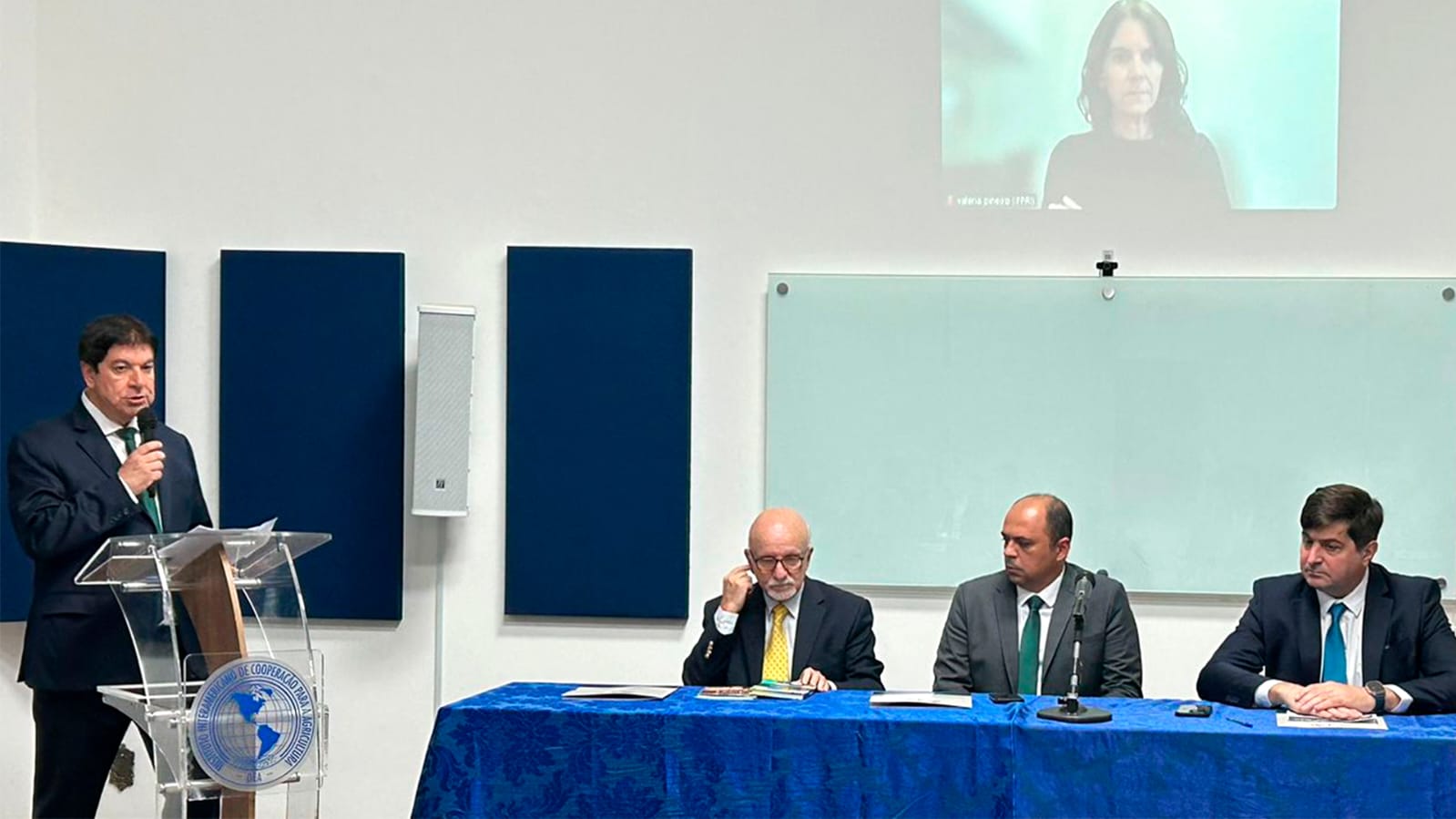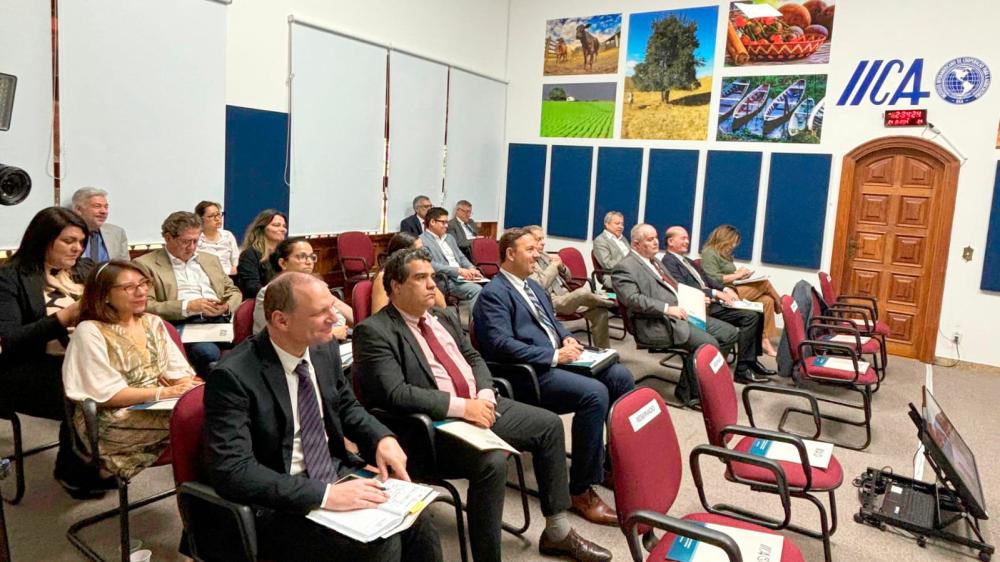Representatives of the Embassy of Uruguay in Brasilia and the Inter-American Institute for Cooperation on Agriculture (IICA) met with officials from six South American countries to discuss logistics integration as key to the competitiveness of agrifood systems in the Southern Cone.

Brasilia, 1 November 2024 (IICA). The Embassy of Uruguay in Brasilia and the Delegation of the Inter-American Institute for Cooperation on Agriculture (IICA) in Brazil brought together officials from six South American countries for a seminar entitled “Logistics Integration as a Source of Competitiveness for Agrifood Systems: Opportunities and Challenges for the Southern Cone” to discuss strategic improvements that would make the region more competitive.
The participants, from Argentina, Bolivia, Brazil, Chile, Paraguay and Uruguay, pointed up the need to overcome certain barriers in order to improve logistics integration, including eliminating the requirement that cargo pass through a national port and allowing the most competitive terminal to be used instead, and prioritizing intermodality.
They also advocated the implementation of mechanisms so that the means of transport used to deliver goods return loaded with other products, thereby reducing operating costs.
The IICA Representative in Brazil, Gabriel Delgado, stressed the importance of being familiar with the particular situation and logistical challenges of each country, and of joining forces to propose joint solutions. “The improvement that can be achieved through our collective action is enormous. And all of this has a very strong, clear impact on the competitiveness of our products and the cost of inputs,” he explained.
Uruguay’s Ambassador to Brazil, Guillermo Valles, suggested that “we need to know the logistics bottlenecks of each country and come up with joint solutions in an intermodal way and with a view to improving the conditions of competitiveness and the development of agrifood production, mindful of the fact that the transport of fibers, minerals and biofuels, for example, will also benefit, impacting different production chains.”
Pedro Neto, Secretary of Innovation at Brazil’s Ministry of Agriculture and Livestock (MAPA), also underlined the importance of the seminar for addressing logistics as a vector of competitiveness for agrifood systems in the Americas.
“Brazil has made great strides in agricultural innovation. We have learned to how to ”do” tropical agriculture and low-carbon agriculture, and have perfected monitoring systems that verify the impacts on socio-environmental issues. We have increasingly resilient agrifood systems, but they lack the logistics component; in the context of competitiveness, the country is failing to reap all the benefits,” he explained.
The Minister of Livestock and Agriculture of Uruguay, Fernando Mattos, participated virtually and emphasized that logistics are a constraint in the process of achieving bilateral and multilateral integration in South America, and to competitiveness. “In 2050, more than 50% of the world’s population will be in Southeast Asia. So we need the bi-oceanic corridors already planned to become a reality in the future, to reduce costs and offer more efficient transport times,” he said.
In addition to the analyses by government representatives, the event featured speakers such as the General Secretary of the Latin American Integration Association (ALADI), Sergio Abreu; the ¨Representative for Latin America and the Caribbean of the International Food Policy Research Institute (IFPRI), Valéria Piñeiro, who addressed the question of the outlook for Mercosur food chains for the next ten years; and the Private Sector Representative of the Paraguay/Paraná waterway, Diego Azqueta, who spoke about transport corridors and the regional integration of logistics, the challenges and transport routes from Mato Grosso to the Río de la Plata.

José Polidoro, Advisor to the Executive Secretariat of Brazil’s Ministry of Agriculture and Livestock (MAPA), presented the Brazilian government’s logistics plan, based on the cross-referencing of information about production, consumption and transportation needs, and also addressing the links between the National Logistics Plan and the National Fertilizer Plan.
According to Polidoro, Brazil has the most expensive fertilizer in the world and 40% of the price has to do with logistics costs.
“The cost of shipping any product from Brazil to China is two and a half times higher than that of the same product leaving from the United States. Around 47% of all fertilizer consumed in the country enters through two ports and 35% is delivered in just two states. Overcoming the logistical challenge of inputs and fertilizers is essential to ensure rationality and competitiveness. We want Brazil to stop being a price taker and become a price maker, and for that to happen, we have to seek integration with other countries.”
The Representative of the Brazilian Infrastructure Institute, Mário Povia, highlighted the challenges of regional integration and the governance of agrifood logistics.
The last part of the seminar was devoted to the final thoughts of the representatives of the countries of the region. João Carlos Parkson de Castro, Head of Logistics at Brazil’s Ministry of Foreign Affairs, chaired the session.
More information:
Institutional Communication Division.
comunicacion.institucional@iica.int











